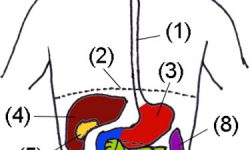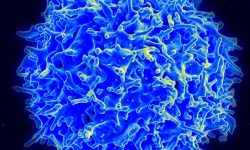Breast Cancer can be Prevented – Learn to Reduce Breast Cancer Risk
Breast cancer is one of the greatest causes of death for women around the world. According to the estimates from SEER, more than 230,000 women were expected to be diagnosed with the condition and around 39,520 deaths to result from it in the year 2011. To put it simply, 1 in every 8 women is under breast cancer risk. These statistics may or may not sound alarming to different people but there is little doubt about the serious and lethal risk of breast cancer. The World Health Organization recognizes breast cancer as one of the leading health threats and its frequency of diagnosis is only second to lung cancer.

Source by : wikimedia
Fortunately, medical research tells about several risk factors of breast cancer which can work as a rough guide to women looking to avoid its occurrence and to regularly undergo check up if the risk is high.
Breast Cancer Risk Factors
- White women are more likely to develop breast cancer than Black, Asian or Hispanic women. Black women are more likely to develop breast cancer than Asian or Hispanic women.
- Women with a genetic history of breast cancer are more likely to develop breast cancer. This is particularly true if a family member had developed breast cancer before the age of 50.
- Women who have already been diagnosed with cancer in one breast have a high chance of developing it in the other one as well.
- Women who have undergone chest radiation therapy under the age of 30 have a risk of diagnosed with breast cancer. The younger the age of exposure to radiation therapy, the higher is the risk.
- Women with greater breast density as observed on a mammogram as compared to that of other women of the same age have been found to have a higher risk of developing breast cancer.
- Women who have been administered DES, a drug discontinued after 1970, are at a slightly increased risk of being diagnosed with breast cancer.
- Women who have never had children have an increased risk of breast cancer, while the older the woman is when her first child is born, the greater the risk.
- Women undergoing hormone replacement therapy for menopause are more likely to be diagnosed with breast cancer. Furthermore, women having menopause after age 55 have an increased risk of breast cancer.
- Women who become obese or overweight after menopause have increased risk of developing breast cancer.
- Women who smoke are more likely to develop breast cancer as compared to those who do not.
- Women who drink alcohol are at a greater risk of developing breast cancer than those who do not.
- Women who do not exercise regularly have an increased risk of breast cancer.
- Women with exposure to objects known to cause cancer such as radiation sources are more likely to develop cancer than those undergoing no such exposure.

Source by : wikimedia
Now that you have learned about the risk factor of breast cancer, you can see that most of the risk factors are beyond your control. Therefore, there are only a few risk factors that you can possibly eliminate in order to reduce breast cancer risk. Nevertheless, you can practice the following techniques to lower breast cancer risk.
Maintain a Balanced and Healthy Diet
It goes without saying that a balanced and healthy diet helps prevent a number of diseases and maintains good health in general. Focus on diet high in antioxidants to boost your immunity and reduce the risk of the development of this lethal but preventable disease.

Source by : wikimedia
Exercise Regularly
One of the most important lifestyle changes that you should pursue in order to reduce the risk of breast cancer is regular exercise. Regular exercise will also allow you to remain fit and avoid putting on a lot of weight. You should work out daily, if only for a few minutes. Studies suggest that no less than one third of breast cancer deaths are caused due to lack of exercise.

Source by : flickr
Don’t Become Overweight or Obese
It is a well known fact that obesity, or even being overweight, is the root cause of several lethal medical conditions such as diabetes and heart disease. Well, add breast cancer to the list. Make sue you have a healthy diet and that you exercise regularly. Making a few lifestyle changes could really prevent you from facing the agony of the diagnosis of breast cancer.
Avoid Smoking and Drinking
If you happen to smoke and/or drink, it is time to say goodbye to these drugs right away. Tobacco smoke is widely known as one of the leading causes of different types of cancer, while alcohol is dangerous for raising estrogen levels in the body. Increased exposure of the breast to estrogen can potentially trigger cancer.
Avoid Hormone Replacement Therapy
Many women opt for hormone replacement therapy after having their menopause. Unfortunately, the correlation of the hormone therapy with breast cancer has been established by medical research. If you are currently undergoing hormone therapy, or have been for quite some time, then you are more likely to be exposed to risk of breast cancer. The altered hormone level also affects the mammogram examination. Therefore, it is wise to consult your physician for a safer treatment alternative for menopause.
Have Regular Self Breast-Exams and Mammogram Screenings
The most important step to reduce breast cancer risk or to avoid the deterioration of the condition if you are diagnosed is undergoing regular check up and following progress. You should carry out breast self-exams regularly which can help you spot any lumps in your breast. It is also critical to have annual mammogram screenings after the age of 40, which can spot very small tumors at a very early stage, which are usually hard to spot with the naked eye or touch. Spotting cancer at an early age can increase the chances of a recovery and minimize the risk of the lethality of the cancer.

Source by : wikimedia

Source by : wikimedia

You should regularly keep an eye on your general health and if you spot any abnormality, then you should consult your physician immediately and examine yourself for the symptoms of breast cancer. Make sure you do not neglect any tell-tale signs or the lump could grow and the tumor could spread beyond the breast, causing possible risk of death.
Remember, breast cancer is curable and even preventable. Recognizing and reducing breast cancer risk is the key to defeating this lethal monster.
Newsletter
Get our Tips and Tricks to your Inbox



